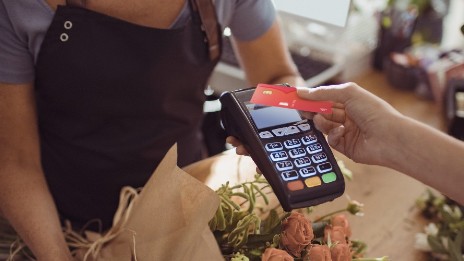What is fraud and how is it different to a scam?
The terms 'fraud’ and ‘scam’ are often used in a similar context and interchangeably, although there are subtle differences. Generally a scam happens with some unwitting involvement from the person being scammed. For example, somebody gains your confidence in order to steal your information or money.
In contrast, fraud is suspicious activity generally occurring without the knowledge of the person (or business) being targeted. Protecting your personal information and devices are two key ways to help protect yourself from fraud.
Cheque fraud
Not many people use cheques these days, but cheque fraud is still prevalent.
Consider the following tips to help reduce cheque fraud:
-
Keep your chequebook in a safe and secure place.
-
Never pre-sign cheques.
-
When mailing cheques, cross the cheque 'Not Negotiable' and send it in a plain envelope without a window.
-
Use a pen or felt tip pen to write on your cheques, never pencil.
-
Bank Cheques should not be considered as good as cash.
-
Don't accept cheques in excess of the agreed price where you are asked to transfer/deposit the balance to a specific account.
For more information on cheque fraud visit the Australia Competition and Consumer Commission's Scam Watch website.
Keeping your identity safe
Identity theft is a type of fraud that involves stealing money or gaining other benefits by pretending to be someone else. Learn how you can protect yourself with Bendigo Bank.
Keeping your devices secure
Learn how to keep your device(s) secure and what to do if your device is ever lost, stolen, broken, or replaced.
Shopping securely online
Secure your online shopping. Mastercard Identity Check, Visa Secure and EFTPOS Secure are free services that protect your card against unauthorised transactions, giving you confidence when shopping online with your Bendigo Bank debit or credit card.
3 steps to remember
-
Stop - don't give money or personal information to anyone if you're unsure.
-
Think - ask yourself, could the message or call be a fake?
-
Protect - act quickly if something feels wrong.
Learn how to protect yourself
How to keep your online banking safe
Here are five ways to protect your online banking information.
8 ways to protect your privacy online
Eight top tips to help to protect you and your family online.
4 ways to use card controls
Here are four ways to use card controls in your everyday life.
If you need help or more information
Phone
If you have clicked on any suspicious links and entered your e-banking details:
Call 1300 236 344 (in Australia) or +61 3 5445 0666 (from overseas - standard international call charges apply)
Monday to Friday - 8am to 9pm AEST/AEDT*
Weekends (Saturday and Sunday) and some public holidays - 9am to 8pm AEST/AEDT
*Excludes Christmas Day
SMS
If you have received a suspicious SMS message claiming to be from us, you can forward it to 0429 557 997 for investigation.
Please note you will not receive a personal response from 0429 557 997.
If you have received any suspicious emails, you can forward them to us via email.
Please note you will not receive a personal email response from us.








